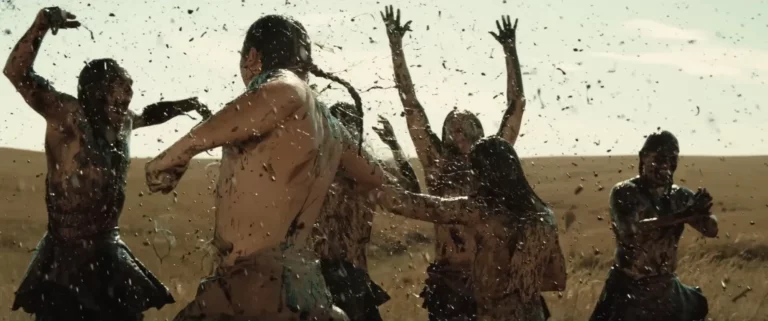by Adriano Izzo, civil lawyer and President of the Gennaro Santilli Foundation
“History is written by the winners” is a recurring phrase which – without falling into rhetoric or, worse, denialism – can have a basis in truth.
The story of historical facts and events can lend itself to a manipulation of reality when the narrative voice is that of the winner who represents the dominant power, thought and culture.
War, not surprisingly, often translates into a contrast between different cultures which sees that of the winner inevitably impose itself on that of the vanquished.
The issue is complex – due to the inevitable implications of an ideological nature that it entails – and deserves to be addressed, also and above all, from the point of view of law and legal thought.
If we accept the truth of a history written by the victors, what can we say about law and its role at the end of a war conflict and, in general, of any act of conquest and oppression?
It is difficult to accept the idea that the law, in its meaning as an instrument for regulating civil life and guaranteeing justice, can become a means of institutionalizing the power and culture of the winners to the detriment of the vanquished. Yet history teaches us that law has often played exactly this role. Anyone who denies this painful truth either does not know history or is in bad faith.
“Killers of the flower moon” is the latest film written, produced and directed by Martin Scorsese with a stellar cast – the splendid Native American actress Lily Gladstone, Robert De Niro and Leonardo Di Caprio among many – which tells the tragedy of the natives Americans, of their sacrifice at the hands of the “white man”.
The expression Native Americans refers to the populations that inhabited the American continent before European colonization and their current descendants. The ethnonym American Indian today is considered an inappropriate and offensive term.
For the first time – this is the credit that must be given to the film based on the essay of the same name by David Grann in 2017 – a film represents the point of view of the natives, in particular of the members of the Osage Nation, forced to leave the vast lands in Kansas by the white settlers who had occupied them to move to a small plot of land in Oklahoma, apparently devoid of resources, only to discover that the hilly and inhospitable land was rich in oil. The sudden wealth made the natives prey to the greed of the colonists.
The chain of murders that shocked the Osage community in the early twentieth century is narrated from the perspective of the protagonist Mollie Burkhart, played by Lily Gladstone, who will end up discovering the identity of the murderers and, therefore, the original sin of American civilization.
The scene of Native Americans dancing in slow motion around oil geysers is among the most powerful and dramatic for its symbolic meaning: the passage from the spiritual and holistic culture of the ancestors to the extractive and individualistic culture of capitalism. A radical change in vision and principles behind which there is the murderous and bloody hand of the “white man” who infests a thousand-year-old culture and subjects it to the religion of the god of money.
Observing how, on a legislative level, the issue of natives has been managed and regulated is a horror journey that freezes the blood and generates a noble feeling often overlooked and underestimated, that of shame.
A regulatory production, tainted by a profoundly racist and discriminatory culture, deprived the natives of their lands and their resources, imposed the presence of a guardian for the management of their wealth, and so on in a series of prohibitions and impositions with a single common denominator: annihilate the native culture, its traditions, languages, customs, food, spirituality.
The physical extermination was followed by a true cultural genocide which had its source and its consecration in the law.
The assimilationist logic became the fulcrum of the legislative initiatives of the colonists who, with the Gradual Civilization Act of 1857, offered money and land to the indigenous people on the condition that they abandon their lifestyle and become literate according to European standards.
The most important and odious law was the Indian Act of 1876 which accelerated the process of forced integration and assimilation. The First Nations were forced to abandon their traditions and rituals, their habits and customs were banned.
The concept of enfranchisement was introduced, according to which a native who was over the age of 21 and learned to write and speak English could (and should) renounce his indigenous identity and become fully part of the British community. In exchange, he obtained citizenship and the right to vote. This process also required abandoning one’s indigenous name.
The history of the Indian Residential Schools, which began to spread at the end of the 19th century and remained open until just over twenty years ago, is one of the most aberrant pages in the history of the natives.
With Pratt’s Project of 1897, schools were opened where indigenous children were forcibly taken after being torn from their families of origin, kept in precarious hygienic conditions, deprived of the right to speak their language and forced to convert to Christianity. It is estimated that thousands of children have died due to disease, malnutrition, neglect or suicide. Many of them lost their lives trying to escape.
Only recently have these laws been abolished or amended, only recently have court sentences been pronounced that awarded billions in compensation to the natives due to the damage they suffered.
It is a form of late and hypocritical repentance that is part of a precise government action having a restorative nature but which nevertheless appears incapable of definitively resolving the problem of discrimination and marginalization that natives still suffer today.
How all this was possible must make us reflect. On the nature of law and its cultural matrix. Law has been, is and always will be a way to translate a specific vision of the world into social action.
Representative democracies are certainly a tool for introducing respect and protection of minority rights into regulatory production. But the road is still long. As long as the vision of the world is governed by economic interests and the logic of domination and oppression, the quality of the sources of law will always be flawed to the detriment of the interests of the weakest.
We need a cultural paradigm shift that is capable of creating and forging a new vision of law and promoting legislation that is not unjust and inequitable.
Photo: “Killers of the flower moon” is the latest film written, produced and directed by Martin Scorsese




